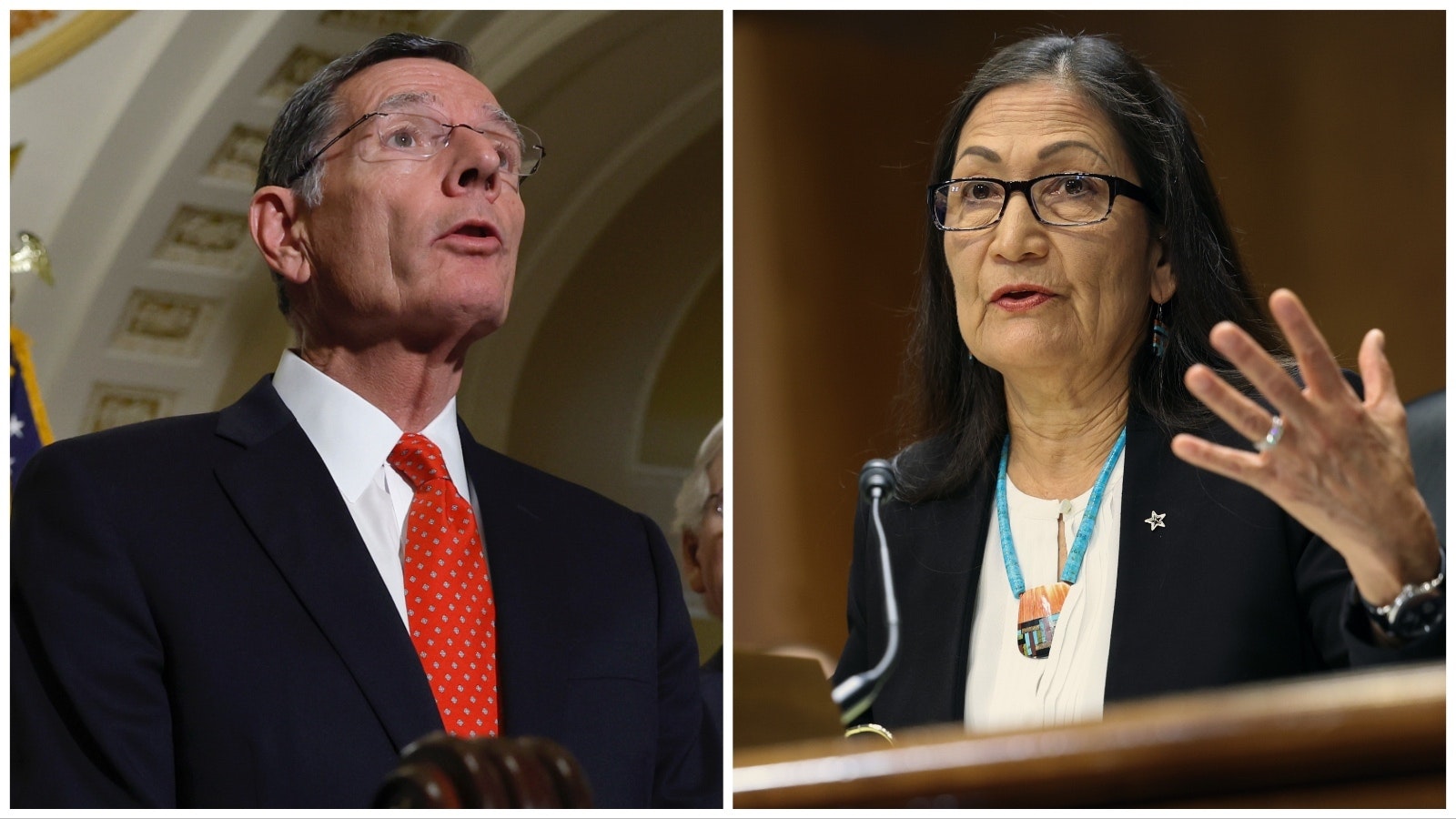U.S. Sen. John Barrasso doesn’t want to see Yellowstone and Grand Teton national parks close if the federal government shuts down later this month.
In a Wednesday letter to Secretary of the Interior Deb Haaland, Barrasso urges her to use entrance fees to keep national parks open in the event of a government shutdown.
“To ensure that you are protecting public access to our public places and preventing any irreversible environmental degradation during a shutdown, I ask that you keep the parks and public lands open and accessible,” wrote Barrasso, a ranking member of the Senate Committee on Energy and Natural Resources.
The fall has become an increasingly important month for gateway communities surrounding Wyoming’s two national parks like Jackson and Cody, as attendance to these parks in September and October has exploded in recent years.
A spokesperson for Barrasso told Cowboy State Daily on Thursday that the senator sent his letter “to make sure the Biden administration doesn’t play politics with our national parks when they have the ability to keep them open.”
Statemate
On Thursday morning, hardline conservatives in the U.S. House blocked a military spending bill for the second time this week that, if not passed,could lead to a government shutdown in nine days. U.S. Rep. Harriet Hageman voted to pass the bill. Five Republicans and every Democrat in the House voted against it.
Republicans had hoped the bill would give some momentum to pass a short-term funding bill to avert a potential Oct. 1 government shutdown. The GOP has been unable to come to a consensus about spending.
House Republicans will need to pass something that can also get through the Democratic-controlled Senate and President Joe Biden's signature before midnight Sept. 30 to avoid a shutdown.
If a shutdown happens, the federal government must stop all nonessential functions until funding is approved by Congress and signed into law. Each agency determines what work is essential and what is not.
Under the Federal Lands Recreation Act (FLREA), the secretary of the interior can use money from the collection of entrance fees for various park services. Barrasso said that’s what kept public lands open during the last government shutdown from December 2018 to January 2019, which resulted in the furlough of thousands of government employees.
That shutdown had less of an impact on the operations of Yellowstone and Grand Teton, as much of both parks are closed during the winter.
During the height of the COVID-19 pandemic in spring 2020, all national parks at least temporarily closed. Yellowstone and Grand Teton were open by the early summer that year.
Use Of Money
Barrasso said federal law obligates Haaland to provide opportunities for people to access national parks.
“Your judicious management of FLREA fees will protect millions of people who plan and save for trips to these special places, ensure that gateway communities that rely on public visitation for jobs and economic stability do not needlessly suffer, and sustain the dedicated National Park Service employees who rely on a regular paycheck,” Barrasso wrote.
Some states like Utah have stepped in to fund their national parks during government shutdowns. A representative for Gov. Mark Gordon did not immediately respond to a request for comment.
Many federal government agencies like the Department of the Interior, the agency that oversees all national parks and public lands agencies, are funded annually through an omnibus bill that must be approved by Congress and signed by the president before the start of the new fiscal year Oct. 1.
In his letter, Barrasso demands by Sept. 28 a current accounting of FLREA money available in the event of a shutdown. He also requests information on how much FLREA funds are planned for each park and a list of parks that do not charge entrance fees or have insufficient available balances.
CBS News reports that since 1976, when the current budget process was enacted, there have been 20 funding gaps lasting at least one full day.
Leo Wolfson can be reached at leo@cowboystatedaily.com.





